
Foto credit: RFE/RL
The convicted war criminal Nebojša Pavković was buried on October 22nd in the Alley of Meritorious Citizens in Belgrade with the highest military honours.
The funeral, alongside the military leadership, was attended by ministers in the Government of Serbia, an envoy of the President of Serbia, certain Hague convicts, and veterans of disbanded wartime units.
“The burial of Nebojša Pavković in the Alley of Meritorious Citizens represents an open denial of judicially established facts and a mockery of the victims,” assessed the non-governmental Humanitarian Law Center.
The former commander of the Third Army of the Yugoslav Army was sentenced by the Hague Tribunal to 22 years in prison for war crimes against Albanian civilians during the war in Kosovo in 1999.
He was released from prison in Finland at the end of September due to his health condition, and he died in Belgrade on October 20th.
He was buried in the Alley of Meritorious Citizens alongside statesmen, writers, poets, actors, and other figures who contributed greatly to Serbia with their work and deeds.
The first democratic Prime Minister of Serbia, Zoran Đinđić, is also buried in that spot, among others.
“This is an insult to all those who were previously buried in the Alley of Meritorious Citizens,” Aleksandar Popov from the non-governmental Center for Regionalism tells Radio Free Europe (RFE).
Highest Honours for a Convicted War Criminal
Pavković was sent off with an honour guard salute and the orchestra of the Guard of the Serbian Army.
The funeral in the Alley of Meritorious Citizens at the New Cemetery in Belgrade was attended by Serbian Government ministers Bratislav Gašić, Milica Đurđević Stamenkovski, and Nikola Selaković.
Also present at the funeral were the Chief of the General Staff of the Serbian Army, Milan Mojsilović, the former head of the intelligence service, Aleksandar Vulin, and the President of the Serbian Government Commission for Missing Persons, Veljko Odalović.
The President of Serbia, Aleksandar Vučić, sent a wreath and an envoy—adviser Suzana Paunović, and his son Danilo was also at the funeral.
“By rendering state honours to a convicted war criminal, accompanied by a false image of ‘honour, courage, and service to the homeland,’ the authorities intensify pressure on the ‘captured society’ in Serbia, especially on the youth, to stand in defense of the ‘heroes who defended the Serbian people’,” stated Nataša Kandić, founder of the Humanitarian Law Center.
The funeral was also attended by other convicts who served sentences in The Hague for the gravest crimes during the wars of the 1990s, such as Vladimir Lazarević, Nikola Šainović, and Veselin Šljivančanin.
Pavković was also accompanied by the former commander of the 125th Motorized Brigade of the Yugoslav Army, Dragan Živanović, who has been indicted before the court in Pristina for the massacre of Albanian civilians in Meja and other villages around Gjakova during the 1999 war.
“Here, criminals are considered heroes. This is preparation to indoctrinate the coming generations so that all this can repeat itself at some point,” warns Aleksandar Popov from the Center for Regionalism.
The veterans’ association “Red Berets” also paid their “respects” to Pavković, along with the Serbian Army.
This unit, which participated in crimes during the wars of the 1990s, was disbanded after the assassination of Zoran Đinđić. Its members were convicted of the assassination of Serbia’s first democratic prime minister, as well as other political murders.
Before the burial, a commemoration was held at the Army Hall, which was attended, among others, by the Director of the Office for Kosovo and Belgrade’s negotiator in the Brussels dialogue on the normalisation of relations with Pristina, Petar Petković.
Who Decides on Burial in the Alley of Meritorious Citizens?
According to the Decision on Cemetery Management and Burial in the territory of Belgrade, those who were prominent and gave a corresponding contribution in their field of work can be buried in the Alley of Meritorious Citizens.
The proposal for burial in this special plot is made by the institution of which the deceased was a member, with the prior consent of family members.
The proposal is decided by the Commission for the Assessment of Justification, which is formed by the Mayor of Belgrade.
According to the decision, this Commission consists of “representatives of relevant ministries, the Serbian Academy of Sciences and Arts, the Olympic Committee of Serbia, the relevant organizational unit of the Belgrade City Administration, and others.”
The Media Service of the City of Belgrade did not answer the questions of Radio Free Europe as to whose proposal Nebojša Pavković was buried in the Alley of Meritorious Citizens, nor by what criteria the Commission that made the decision was guided.
What is Pavković ‘Meritorious’ For?
During the war in Kosovo, he was the commander of the Third Army of the Yugoslav Army.
“The defence of Kosovo is a strategic goal and our main national interest,” he said in March 1999 before the start of the NATO intervention, which was launched due to the crimes of the Serbian forces against the Albanian population.
After the war ended, the then-President of Yugoslavia, Slobodan Milošević, awarded him the “Order of Freedom,” and in February 2000, he was promoted to Chief of the General Staff.
He was in that position even when Milošević’s regime was overthrown by mass demonstrations on October 5th. The new President of Yugoslavia, Vojislav Koštunica, retired him only two years later.
The Prosecutor’s Office in The Hague indicted him for war crimes in 2003, and Pavković surrendered in 2005.
In the first-instance verdict from 2009, he was found guilty on all counts of the indictment and convicted of deportations, forcible transfers, murders, sexual assault, and persecution of Albanian civilians from Kosovo, as well as the destruction of religious objects and violations of the laws and customs of war.
“Through a widespread and systematic campaign of terror and violence, the Albanian population in Kosovo was to be displaced both within and outside Kosovo,” the verdict states.
The first-instance verdict was confirmed in 2014.
Along with Pavković, others convicted were the former Chief of the General Staff of the Yugoslav Army Dragoljub Ojdanić, the former commander of the Pristina Corps Vladimir Lazarević, police general Sreten Lukić, and the former Deputy Prime Minister of the Federal Republic of Yugoslavia Nikola Šainović.
Šainović, Pavković, and Lukić were designated in the verdict as key participants “in a joint criminal enterprise,” the goal of which was “to change the ethnic balance in order to maintain Serbian control” over Kosovo.
Pavković himself referred to his participation in the Kosovo war as the “heroic defence” of Kosovo. This was, among other things, included in his war diary, which was promoted at the Serbian Army Hall in 2019 with a video address by Pavković. Four years later, he joined a public lecture at a school in Vojvodina via video link from prison.
Glorification of Convicted War Criminals
The authorities and pro-government media in Serbia have called Nebojša Pavković a “hero” and a “brave man.”
In a telegram of condolences, the President of Serbia, Aleksandar Vučić, wrote that Pavković “left the mark of an officer who performed his duty with a strong sense of responsibility, dedication, and belonging to Serbia.”
“Generations of soldiers and officers will remember him for his work, discipline, and the conviction that the uniform is worn with honour, and one’s word is kept like a vow,” Vučić stated.
At the time the crimes in Kosovo for which Pavković was convicted were committed, Vučić was the Minister of Information in the Government of Serbia.
Ivica Dačić, the leader of the Socialists, Slobodan Milošević’s former party, who is currently the head of the Serbian police, said that Pavković “defended the honour and dignity of Serbia and its army in difficult times.”
The President of the ruling Serbian Progressive Party and former Prime Minister Miloš Vučević assessed that it is a point of pride for Serbia that it managed to bring back “two great war commanders” – Nebojša Pavković and Vladimir Lazarević.
Lazarević arrived in Serbia in 2015 via a government plane after serving two-thirds of his sentence for crimes in Kosovo. He was met at the airport by ministers, and afterwards was given a lecturer position at the military academy, and later the title of honorary citizen of a municipality in southern Serbia.
Who is Buried with Pavković?
Actors, writers, poets, athletes, singers, politicians, and other significant figures who contributed greatly to Serbia are buried in the Alley of Meritorious Citizens.
It was built in 1965 as a special architectural unit where more than 800 personalities have been buried so far. Due to the concept that all those buried are “equal in merit – regardless of profession,” the appearance of the plaques is the same.
The first democratic Prime Minister of Serbia, Zoran Đinđić, the writer and Nobel laureate Ivo Andrić, as well as the writers Danilo Kiš, Meša Selimović, Miloš Crnjanski, the poet Vasko Popa, and the painters Petar Lubarda and Paja Jovanović are buried in this place.
The actors Danilo Bata Stojković, Zoran Radmilović, Olivera and Rade Marković, Dragan Nikolić and Milena Dravić, Petar Kralj, and others are also buried in the Alley of Meritorious Citizens.
Also in the Alley is the former President of Yugoslavia, academician Dobrica Ćosić, who was one of the main ideologues of Serbian nationalism in the nineties. These are also the years when more and more people from the entertainment industry began to be buried in the Alley, so today, folk music singers like Džej Ramadanovski, Šaban Šaulić, and Predrag Cune Gojković are also there./RSE/

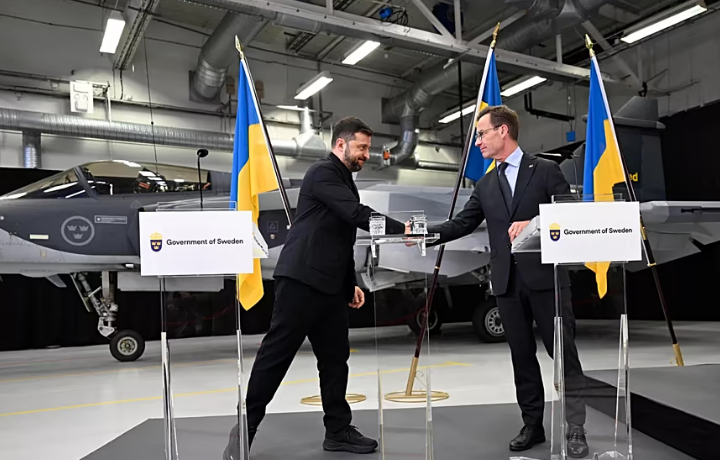 Ukraine and Sweden sign a long-term deal for up to 150 Gripen fighter jets for Kyiv
Ukraine and Sweden sign a long-term deal for up to 150 Gripen fighter jets for Kyiv 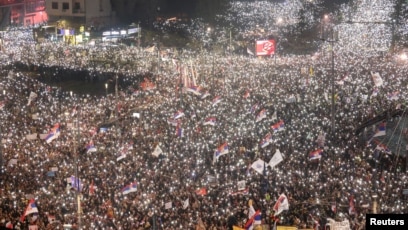 European Parliament draft resolution on Serbia supports citizens’ right to protest
European Parliament draft resolution on Serbia supports citizens’ right to protest 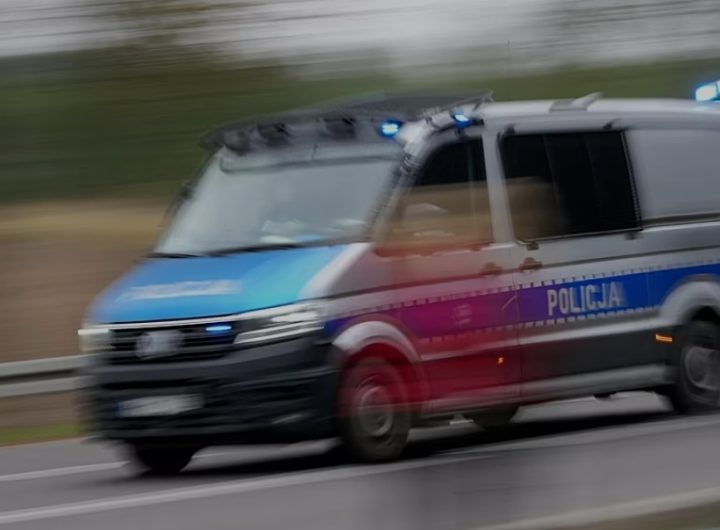 Poland detains eight over suspected Russia-linked sabotage, says PM Tusk
Poland detains eight over suspected Russia-linked sabotage, says PM Tusk 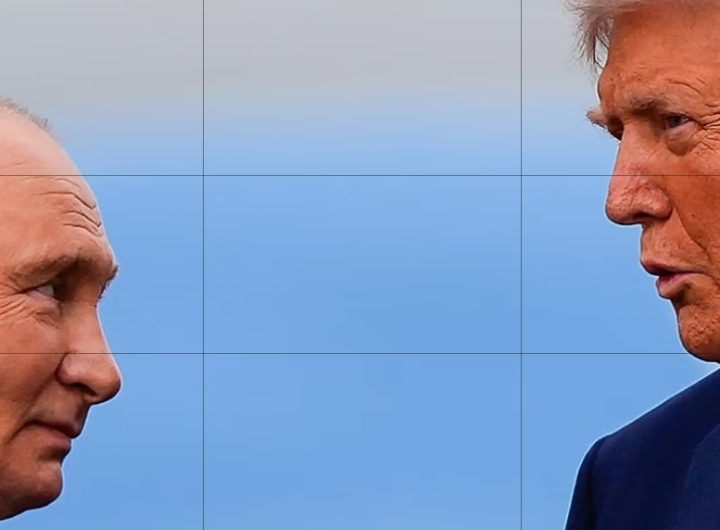 No Trump-Putin meeting in foreseeable future — this is why
No Trump-Putin meeting in foreseeable future — this is why 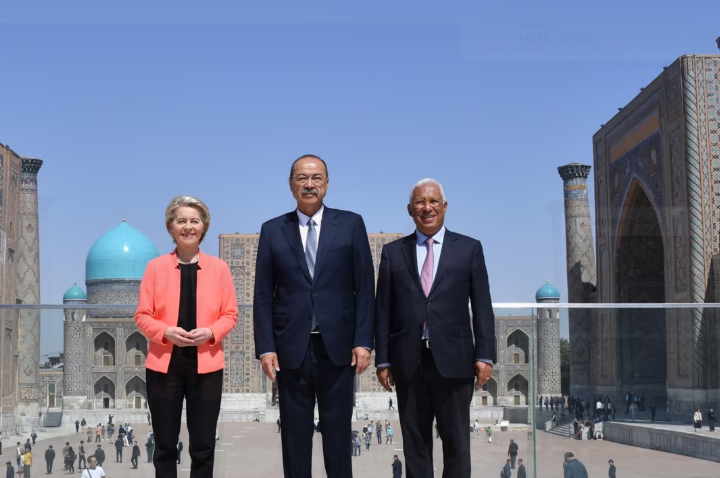 EU Readies New Trade Routes — And A Challenge To Beijing And Moscow — At Luxembourg Summit
EU Readies New Trade Routes — And A Challenge To Beijing And Moscow — At Luxembourg Summit 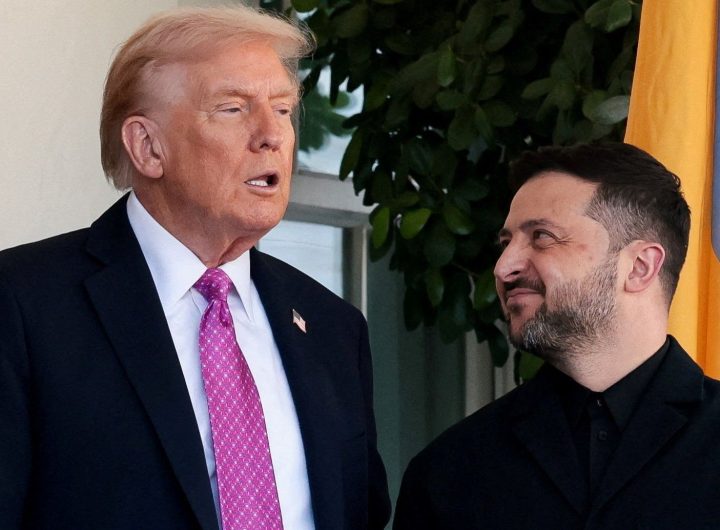 Zelensky ready to join Trump-Putin talks after ‘frank’ White House meeting
Zelensky ready to join Trump-Putin talks after ‘frank’ White House meeting